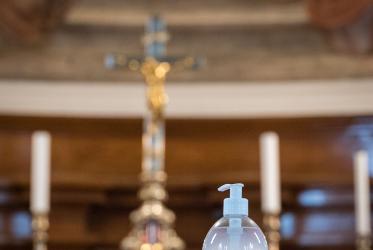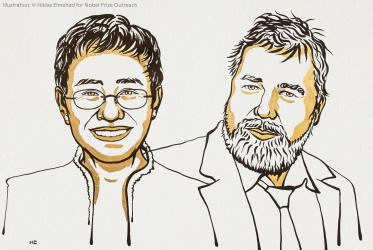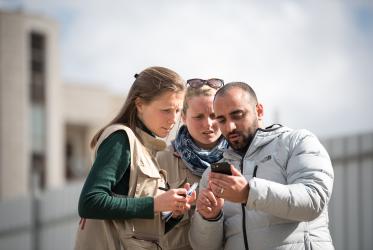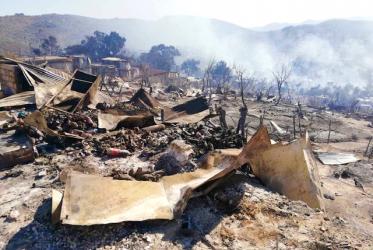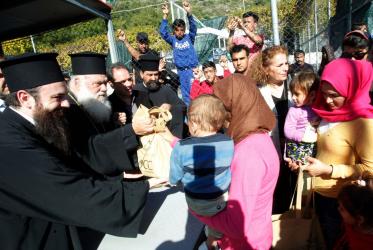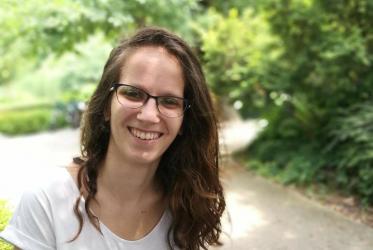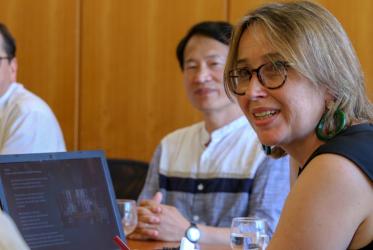Displaying 1 - 20 of 111
WCC honoured with Geneva Engage Award
01 February 2022
WCC congratulates 2021 Nobel Peace Prize laureates
14 October 2021
WCC honored with Bridge Builder Award 2021
02 July 2021
In a COVID-stricken world, “everyone is important”
23 October 2020
Markus Imhoof film receives human rights award
10 October 2019
Role of religion being questioned in public event in Norway
14 August 2019


